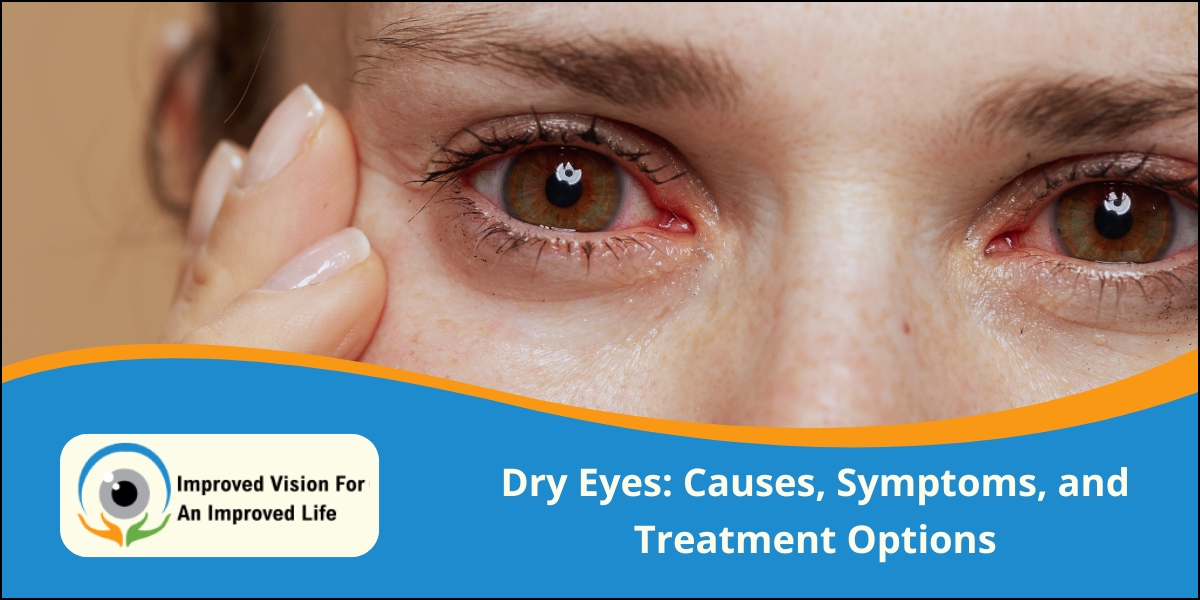Dry eyes are a common condition that occurs when your tears fail to provide adequate lubrication for your eyes. Whether due to environmental factors, aging, or underlying health conditions, dry eyes can cause discomfort and affect vision. If you’re experiencing persistent dryness, itching, or irritation, consulting an eye specialist can help diagnose and treat the issue effectively.
What Causes Dry Eyes?
Dry eyes can result from various factors, including:
- Decreased Tear Production – Aging, medical conditions (like diabetes or rheumatoid arthritis), or damage to tear glands can reduce tear secretion.
- Increased Tear Evaporation – Exposure to wind, smoke, or dry air, as well as prolonged screen time, can cause tears to evaporate too quickly.
- Imbalance in Tear Composition – Tears consist of oil, water, and mucus. An imbalance can lead to poor tear quality.
- Medications – Antihistamines, decongestants, and certain blood pressure medications can contribute to dryness.
- Contact Lens Use – Long-term use of contact lenses may irritate the eyes and reduce moisture.
- Medical Conditions – Conditions like blepharitis, Sjögren’s syndrome, or thyroid disorders can trigger dry eyes.
Symptoms of Dry Eyes
Common signs include:
- A stinging or burning sensation
- Redness and irritation
- Sensitivity to light
- Blurred vision
- Feeling like something is in your eye
- Watery eyes (a reflex response to dryness)
Treatment Options for Dry Eyes
Depending on the severity, treatments may include:
1. Artificial Tears
Over-the-counter lubricating eye drops can provide temporary relief for mild dryness.
2. Prescription Medications
- Anti-inflammatory drops (like cyclosporine or lifitegrast) to reduce corneal irritation.
- Steroid eye drops for short-term relief of inflammation.
3. Punctal Plugs
Tiny plugs inserted into tear ducts to prevent tear drainage, keeping eyes moist for longer.
4. Lifestyle & Home Remedies
- Use a humidifier to add moisture to the air.
- Take breaks during screen time (20-20-20 rule: every 20 minutes, look 20 feet away for 20 seconds).
- Wear wraparound sunglasses to protect against wind and dust.
- Increase omega-3 fatty acids in your diet (found in fish, flaxseeds, and walnuts).
5. Advanced Treatments
For severe cases, procedures like Lipiflow (thermal pulsation treatment) or intense pulsed light (IPL) therapy may be recommended.
When to See an Eye Specialist?
If home remedies don’t alleviate symptoms, or if you experience:
- Severe pain or redness
- Sudden vision changes
- Difficulty keeping eyes open
Dry eyes can significantly impact daily life, but with proper care and treatment, relief is possible. Whether through lifestyle adjustments, medications, or professional interventions, addressing the root cause is essential. For the best dry eye treatment in Moshi, schedule a consultation with Dr. Vasundhara Kulkarni, renowned as the best ophthalmologist in Moshi. Pune




